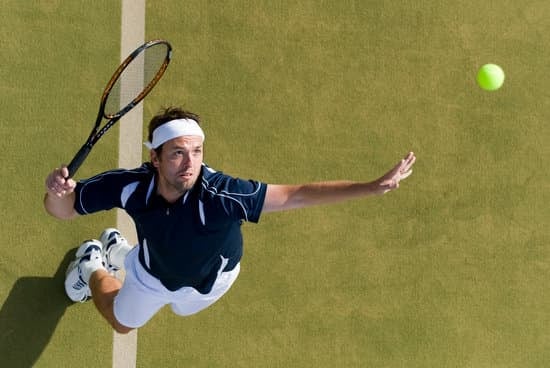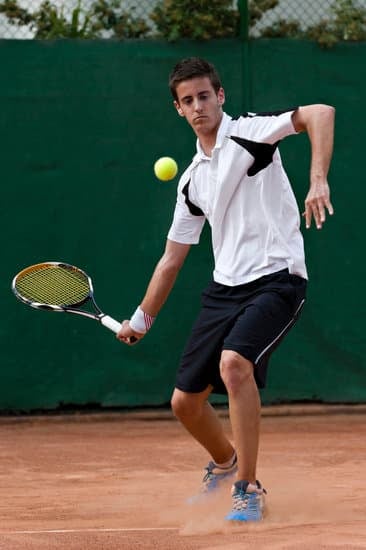
It’s a path which usually begins with local tournaments, progressing to national and international competitions, and ultimately culminating in a place among the elite in professional tennis.
The road to professional tennis is not an easy one, it demands immense commitment and sacrifices from not only the players themselves but also their coaches and support teams. Families often make significant financial investments in their children’s tennis careers, and coaches dedicate their time and knowledge to help mold talented athletes. Support teams, such as fitness trainers, sports psychologists, and physiotherapists, play a crucial role in helping athletes maintain their peak performance levels while navigating the challenges of the professional circuit.
Transitioning from the Junior ITF to the ITF Tour can be a daunting task for many young players.

To succeed on the ITF Circuit, it is essential for athletes to develop both their physical and mental skills.
Players must possess the strength, endurance, and agility needed to compete at the highest level.
To achieve this, aspiring tennis professionals must dedicate themselves to rigorous fitness training that targets specific muscle groups and optimizes their overall physical condition. This includes a combination of cardiovascular workouts, strength training, flexibility exercises, and plyometrics to enhance their speed, power, and reaction times on the court.
In addition to physical fitness, players must also work on improving their technique through countless hours of on-court practice. This involves perfecting their serve, groundstrokes, volleys, and overheads, as well as refining their footwork and court positioning. By continuously honing these technical skills, players can increase their consistency and accuracy, enabling them to capitalize on their opponents’ weaknesses.
Another vital component of tennis success is the development of effective strategies for various opponents and court surfaces. Players must learn how to read their opponents’ game styles and adapt their tactics accordingly. This might involve changing the pace of play, employing strategic shot selection, or exploiting specific patterns of play to unsettle their opponents. In addition, players must become proficient in adjusting their game to different court surfaces, such as hard courts, clay courts, or grass courts, as each surface requires a distinct set of skills and tactics.
It’s not all about the physical game, the mental game is just as important…
Mentally, players must develop resilience and the ability to stay focused under pressure. The intensity of competition, coupled with the constant travel and stress of professional tennis, can take a toll on an athlete’s mental wellbeing. Therefore, developing mental strength and learning to cope with adversity are crucial factors in achieving success in the men’s circuit.
Success in professional tennis requires full-time dedication to the sport. Players must commit to a rigorous training schedule, often spending several hours a day on the court and in the gym. Additionally, they must make sacrifices in their personal lives, frequently traveling away from home to compete in tournaments around the world. This level of dedication is necessary for athletes to continue improving their game, maintain a high level of physical fitness, and stay competitive in the ever-evolving world of professional tennis.
Hard work and determination are essential components of success in tennis. However, surrounding oneself with the right people can make a significant difference in an athlete’s career. Building a strong support team, consisting of coaches, trainers, and other professionals, can provide players with the guidance, encouragement, and resources they need to excel. Moreover, having a network of family and friends who understand and support the sacrifices required for a professional tennis career can be invaluable in helping players cope with the pressure and demands of the sport.
For aspiring tennis professionals, it is crucial to establish a training regimen that involves four to five hours of practice daily.

While it is essential to train hard and consistently, it is equally important for athletes to prioritize rest and recovery. Balancing quality training with adequate rest ensures that players can maintain their peak performance levels without succumbing to injuries or burnout. Scheduling regular rest days, incorporating proper warm-up and cool-down routines, and focusing on nutrition and hydration can all contribute to a player’s overall health and longevity in the sport.
Coaches and mentors play a vital role in the development of aspiring tennis professionals. They provide expert guidance on technique, strategy, and physical conditioning, while also helping players to navigate the mental challenges associated with the sport. A strong relationship between a player and their coach can lead to significant improvements in performance, as they work together to identify and address areas of weakness and capitalize on strengths.
To gain the necessary competitive experience, aspiring tennis professionals must actively participate in tournaments and face higher-level competition. This exposure to more challenging opponents helps players test their skills, identify areas for improvement, and develop mental resilience in high-pressure situations. Competing in a variety of tournaments, from local events to international championships, provides valuable experience that can prove instrumental in the transition to the professional circuit.
Each tournament experience offers a unique opportunity for players to learn and grow. By reflecting on their performance, analyzing match footage, and discussing outcomes with coaches and mentors, athletes can identify areas that need improvement and make the necessary adjustments. This iterative process of learning and adapting is crucial for continuous development and progress in a player’s tennis journey.
Persistence is a critical factor in achieving success as a professional tennis player. The journey is filled with challenges and setbacks, from injuries and losses to the rigors of constant travel and competition. Overcoming these obstacles requires determination, resilience, and an unwavering belief in one’s abilities. By facing adversity head-on and learning from setbacks, athletes can continue to progress and ultimately achieve their goals.
Becoming a professional tennis player involves cultivating a strong work ethic, maintaining a positive attitude, and focusing on continuous improvement. This mindset enables athletes to stay motivated, even in the face of challenges and setbacks. By embracing this mentality, aspiring tennis professionals can foster the mental resilience necessary to succeed at the highest level of the sport and ultimately achieve their desired outcome.
Developing and maintaining a professional tennis career can be a costly endeavor.
Expenses include coaching fees, equipment, travel and accommodation for tournaments, and physical therapy or medical support. It is essential for aspiring tennis professionals and their families to understand the financial commitment involved in pursuing this career and prepare accordingly.
To offset the costs associated with a professional tennis career, players can explore various funding options. These may include securing sponsorships from companies, receiving support from national tennis federations, or relying on family contributions. Building a strong network of supporters and sponsors is crucial for aspiring professionals to navigate the financial challenges of pursuing their dreams.
Aspiring tennis professionals can develop their skills on a budget by taking advantage of regional resources and local tournaments. Participating in local events reduces travel expenses while still providing valuable competitive experience. Additionally, players can seek out affordable coaching options in their area, such as group lessons or partnering with other aspiring athletes for shared training sessions.

The journey to professional tennis success typically follows a series of developmental stages, with players starting in local, regional, and national competitions before progressing to international tournaments and ultimately the professional circuit. It is essential for aspiring tennis professionals to understand this progression and set realistic goals and benchmarks for themselves. However, individual timelines may vary based on factors such as physical development, financial resources, and access to quality coaching.
Each player’s journey to tennis success will be unique, influenced by individual circumstances and the ever-evolving nature of the sport. Aspiring tennis professionals must remain adaptable, adjusting their expectations and strategies based on their personal development, opportunities, and the current state of the tennis landscape. By staying flexible and open to change, players can maximize their chances of achieving their goals and reaching the pinnacle of professional tennis.
There no doubt the journey to becoming a professional tennis player is certainly challenging, but it’s also immensely rewarding for those who are willing to put in the hard work required to succeed. Aspiring tennis pros must remember that the path to success is paved with countless hours of practice, numerous setbacks, and continuous learning. By embracing these challenges and viewing them as opportunities for growth, players can build the resilience and tenacity necessary to thrive in the competitive world of professional tennis.
It is essential for aspiring tennis professionals to remain dedicated and committed to their goals, even in the face of adversity. The road to success is often long and winding, but those who persevere through the tough times will ultimately find themselves closer to achieving their dreams. By surrounding themselves with a strong support network, constantly seeking opportunities for growth, and maintaining a positive mindset, aspiring tennis pros can unlock their full potential and make their mark on the tennis world. Remember, the journey to becoming a professional tennis player is not a sprint, but a marathon – it takes time, effort, and unwavering commitment. So, stay focused on your goals, believe in your abilities, and never give up on your dreams. The path to tennis success is within your reach, and with dedication and determination, you can make it a reality.
